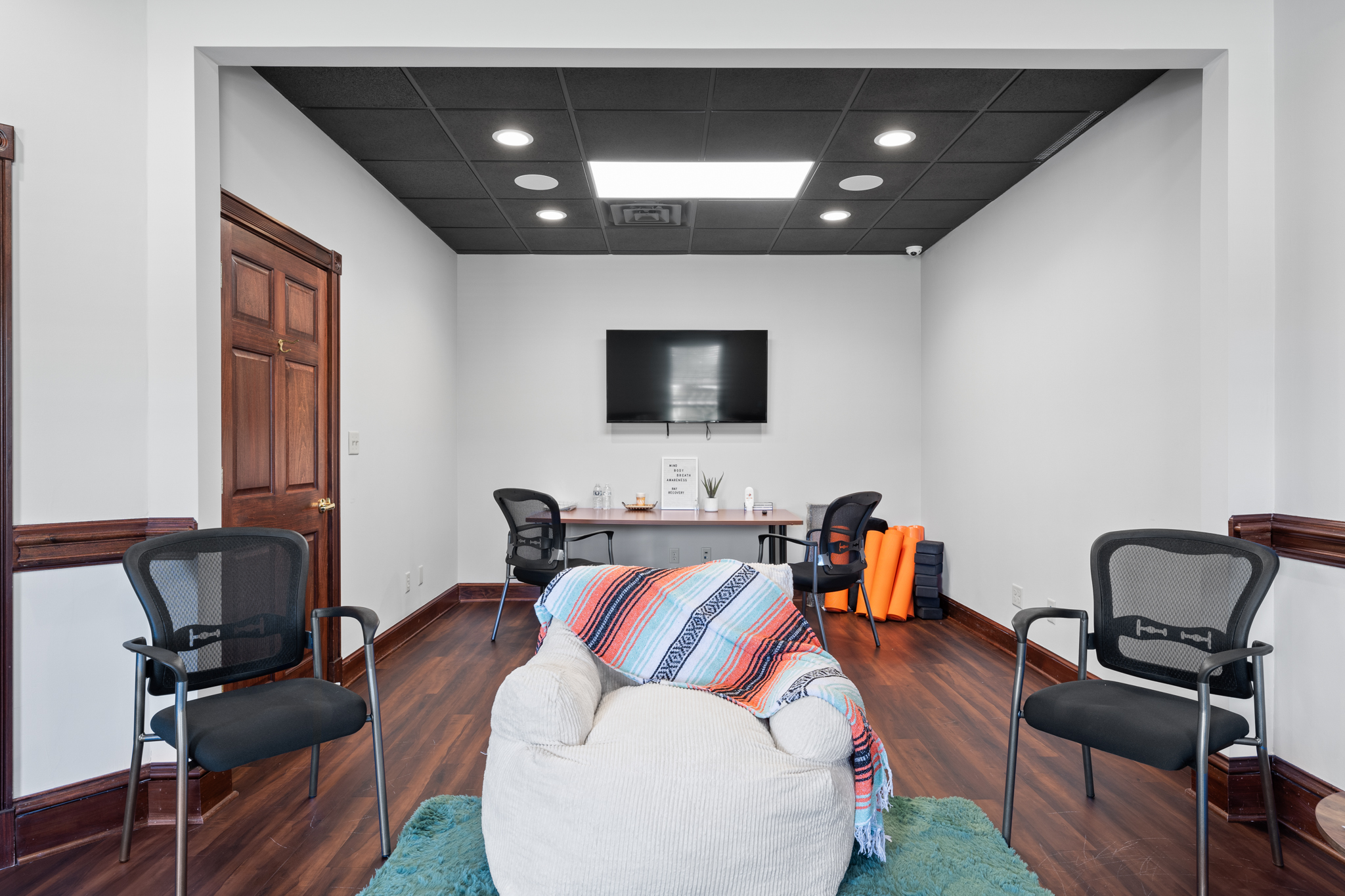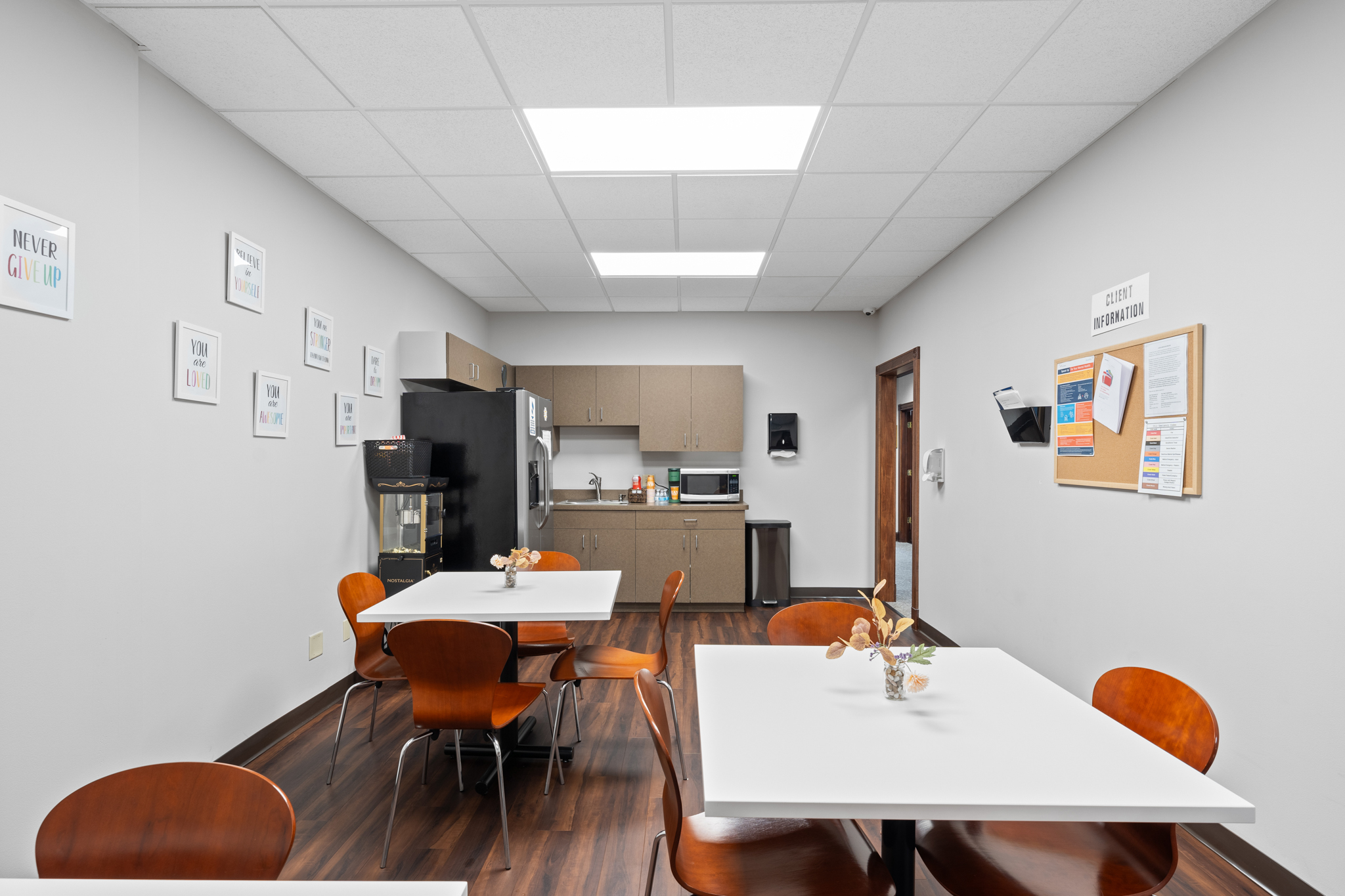
Substance use disorder (SUD) is a serious problem that plagues many communities and individuals. Treatment centers are vital to helping those struggling with substance use issues take back control of their lives. Substance abuse treatment services provide individuals with the tools and resources to break free from addiction. These services help equip participants with the skills they need to make healthy lifestyle changes while offering coping mechanisms for managing triggers and cravings. Ray Recovery offers a ray of light in the darkness of addiction struggles, illuminating a path toward recovery. Call 888.598.6299 to learn more about our substance abuse treatment programs.
Types of SUDs We Treat at Ray Recovery
At Ray Recovery, we understand that not everyone experiences addiction the same way. For this reason, we have specialized substance abuse treatment programs targeting a wide array of substances. These programs will also get at the underlying causes of an individual’s addiction and provide personalized treatment to facilitate recovery. Some of the SUD treatment programs we offer include the following:
Regardless of how or why you ended up caught in the cycle of addiction, Ray Recovery can help. We are a ray of hope in the darkness of addiction.
What Are the Signs of Substance Abuse?
Signs of substance abuse can vary depending on the type of substance being abused and the individual’s specific circumstances. However, some common signs and symptoms that may indicate substance abuse include:
Changes in Behavior
- Sudden mood swings or unexplained changes in personality.
- Increased secrecy or lying about activities and whereabouts.
- Irritability, agitation, or hostility, especially when questioned about substance use.
Physical Signs
- Bloodshot eyes or pupils that are larger or smaller than usual.
- Changes in appetite or weight, including sudden weight loss or gain.
- Impaired coordination or clumsiness.
- Frequent sniffing, runny nose, or nosebleeds (in the case of drug snorting).
- Unexplained bruises, marks, or track marks on the body.
Changes in Sleep Patterns
- Insomnia or difficulty falling and staying asleep.
- Excessive sleepiness or sleeping at unusual times.
Neglect of Responsibilities
- Decline in performance at work or school.
- Neglect of personal hygiene and appearance.
- Disinterest in previously enjoyed activities or hobbies.
Financial Problems
- Unexplained financial difficulties or sudden requests for money.
- Selling personal belongings or stealing to support drug or alcohol habits.
Social Withdrawal
- Withdrawal from family, friends, and social activities.
- Spending more time alone or with new, substance-using friends.
Legal Issues
- Legal problems such as arrests, DUIs (Driving Under the Influence), or charges related to drug possession or distribution.
Health Issues
- Persistent cough, hoarseness, or respiratory issues (for individuals who smoke or use drugs through inhalation).
- Changes in appetite, including significant weight loss or gain.
- Chronic health conditions or exacerbation of existing health problems.
Tolerance and Withdrawal Symptoms
- Developing a tolerance to the substance, requiring larger amounts to achieve the desired effect.
- Experiencing withdrawal symptoms when attempting to stop using the substance, such as nausea, sweating, shaking, or anxiety.
Denial and Defensiveness
- Denying or downplaying the severity of substance use when confronted by loved ones or concerned individuals.
- Becoming defensive or angry when questioned about substance use.
It’s important to note that experiencing one or more of these signs does not necessarily mean someone is abusing substances, but they may warrant further assessment or intervention, especially if they are occurring in combination or persistently over time. If you suspect someone you know is struggling with substance abuse, it’s essential to approach them with care, empathy, and support, and encourage them to seek professional help.









Request A Callback
"*" indicates required fields
Benefits of Substance Abuse Treatment Services
The benefits of SUD treatment services are wide-ranging. Engaging in such programs can lead to significant improvements in substance use and quality of life. Substance abuse treatment programs offer many benefits, including:
- Structured and personalized treatment plans designed to meet the individual’s specific needs
- Holistic approaches that focus on addressing the root causes of addiction
- Evidence-based therapeutic practices to help those struggling with addiction understand why they are using and how to break the cycle
- Counseling and support groups that provide individuals with a safe place to talk about their substance use in order to foster healing.
- Skills to help individuals address substance abuse-related issues, such as managing stress and triggers or developing healthier coping skills
- Educational materials and resources to help individuals
Professional substance abuse treatment services provide a comprehensive approach that addresses an individual’s specific needs while instilling the skills to help them lead a life of recovery.
Common Therapies Used in Substance Abuse Treatment Services
Therapies used in the treatment of SUD can range from evidence-based therapies to holistic approaches. The various therapeutic approaches ensure that the right approach can be applied to each individual to achieve the best possible outcomes for recovery. Some of the therapies we employ at Ray Recovery include, but are not limited to, the following:
- Cognitive-behavioral therapy (CBT)
- Motivational enhancement therapy (MET)
- Eye movement desensitization and reprocessing (EMDR)
- Dialectical behavior therapy (DBT)
- Acceptance and commitment therapy (ACT)
- Community reinforcement and family training (CRAFT)
- Group therapy
- Family therapy
Additionally, some treatments may involve medication-assisted treatment (MAT), which uses FDA-approved medications like buprenorphine for opioid use disorder.
What to Expect from Substance Abuse Treatment Services
The best possible outcome of a substance abuse treatment program is long-term sobriety and self-sufficiency; however, this can vary greatly depending on the severity of the issue and how long someone has been using drugs/alcohol. The length of stay in a substance abuse treatment program can also vary depending on individual needs. Generally, shorter stays are available for those with a less severe form of addiction, while more extended stays are recommended for those requiring intensive care and support services. At Ray Recovery, we offer outpatient treatment in the form of a partial hospitalization program (PHP) or intensive outpatient program (IOP).
PARTIAL HOSPITALIZATION PROGRAM
A partial hospitalization program is a highly structured and intensive treatment program that is designed to provide the same level of care as an inpatient program with the added flexibility of being able to continue living at home. This type of substance abuse treatment program requires individuals to attend multiple sessions per week for several hours a day over the course of 4 to 8 weeks.
INTENSIVE OUTPATIENT PROGRAM
An intensive outpatient program is a more flexible substance abuse treatment service that provides individuals with the same level of care and support as a PHP but with fewer hours per week. Individuals in an IOP typically attend group treatment 3 to 5 days a week for several hours and individual therapy sessions 1 or 2 times per week.
Contact Ray Recovery for Substance Abuse Treatment Services
No matter the duration or type of substance abuse treatment program needed, seeking one out as soon as possible is essential to restore balance in one’s life. With proper care, those suffering from substance dependence can gain insight into their disease, learn new skills to cope with triggers, build healthier relationships, develop more positive behaviors, and ultimately work toward living their best life.
Ray Recovery is ready to be a ray of light guiding you or a loved one toward recovery. Call 888.598.6299 or contact us online to get started today.


